Year 1
The English curriculum is built around the three interrelated strands of language, literature and literacy. Teaching and learning programs should balance and integrate all three strands. Together, the strands focus on developing students' knowledge, understanding and skills in listening, reading, viewing, speaking, writing and creating. Learning in English builds on concepts, skills and processes developed in earlier years, and teachers will revisit and strengthen these as needed.
In Year 1, students communicate with peers, teachers, known adults and students from other classes.
Students engage with a variety of texts for enjoyment. They listen to, read, view and interpret spoken, written and multimodal texts designed to entertain and inform. These encompass traditional oral texts including Aboriginal stories, picture books, various types of stories, rhyming verse, poetry, non-fiction, film, dramatic performances and texts used by students as models for constructing their own texts.
The range of literary texts for Foundation to Year 10 comprises Australian literature, including the oral narrative traditions of Aboriginal and Torres Strait Islander Peoples, as well as the contemporary literature of these two cultural groups, and classic and contemporary world literature, including texts from and about Asia. Literary texts that support and extend Year 1 students as independent readers involve straightforward sequences of events and everyday happenings with recognisably realistic or imaginary characters. Informative texts present a small amount of new content about familiar topics of interest and topics being studied in other areas of the curriculum. These include decodable and predictable texts which present a small range of language features, including simple and compound sentences, some unfamiliar vocabulary, a small number of high-frequency words and words that need to be decoded phonically, as well as illustrations and diagrams that support the printed text.
Students create a variety of imaginative, informative and persuasive texts including recounts, procedures, performances, literary retellings and poetry.
(source: www.australiancurriculum.edu.au)
Achievement Standard
Receptive modes (listening, reading and viewing)
By the end of Year 1, students understand the different purposes of texts. They make connections to personal experience when explaining characters and main events in short texts. They identify that texts serve different purposes and that this affects how they are organised. They describe characters, settings and events in different types of literature.
Students read aloud, with developing fluency. They read short texts with some unfamiliar vocabulary, simple and compound sentences and supportive images. When reading, they use knowledge of the relationship between sounds and letters, high-frequency words, sentence boundary punctuation and directionality to make meaning. They recall key ideas and recognise literal and implied meaning in texts. They listen to others when taking part in conversations, using appropriate language features and interaction skills.
Productive modes (speaking, writing and creating)
Students understand how characters in texts are developed and give reasons for personal preferences. They create texts that show understanding of the connection between writing, speech and images.
They create short texts for a small range of purposes. They interact in pair, group and class discussions, taking turns when responding. They make short presentations on familiar topics. When writing, students provide details about ideas or events, and details about the participants in those events. They accurately spell high-frequency words and words with regular spelling patterns. They use capital letters and full stops and form all upper- and lower-case letters correctly.
(source: www.australiancurriculum.edu.au)
- Plus Plan
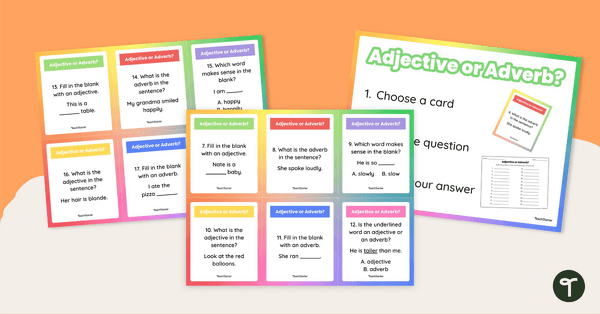
Adjective or Adverb? Task Cards
Use this set of 24 task cards to help students understand where an adverb or an adjective is the correct modifier in a sentence.
- Plus Plan
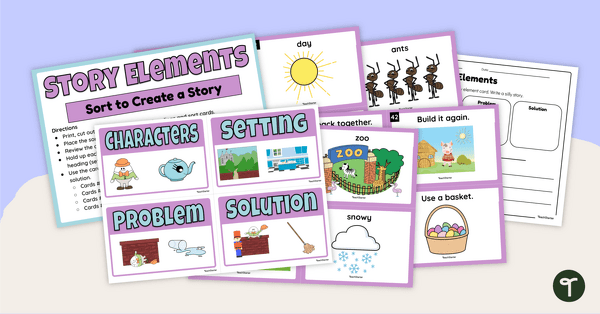
Create a Silly Story – Sorting Activity
Explore story characters, settings, problems and solutions by creating a silly story!
- Plus Plan
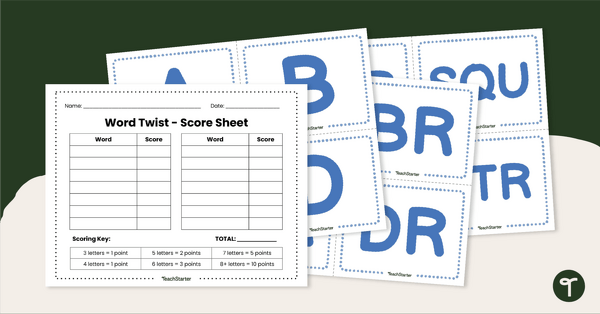
Word Twist – Word Building Game
Encourage word building in your classroom with this fun Boggle-style game!
- Plus Plan
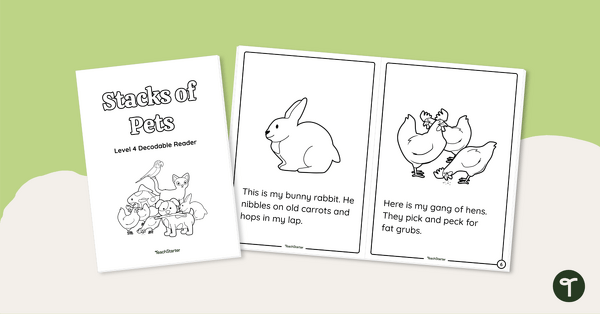
Stacks of Pets - Decodable Reader (Level 4)
Develop confident, successful readers with this phonics-based, printable decodable book.
- Plus Plan
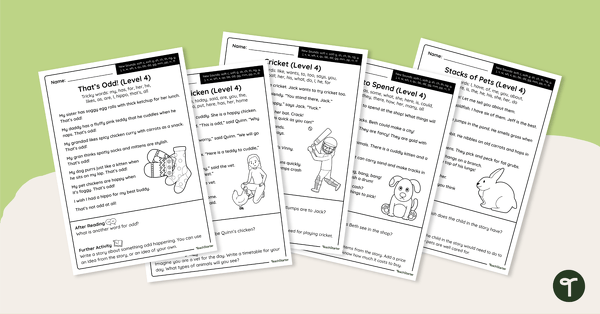
Level 4 Decodable Readers - Worksheet Pack
A set of one-pager worksheet versions of the texts from our Level 4 decodable readers.
- Plus Plan
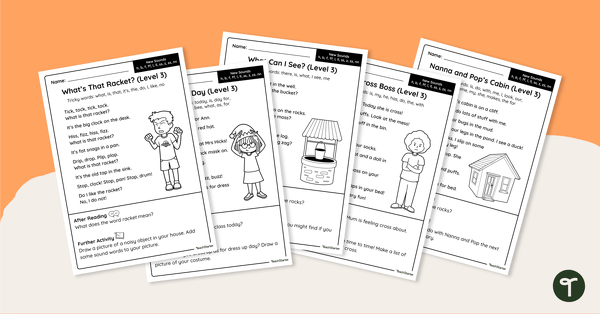
Level 3 Decodable Readers - Worksheet Pack
A set of one-pager worksheet versions of the texts from our Level 3 decodable readers
- Plus Plan
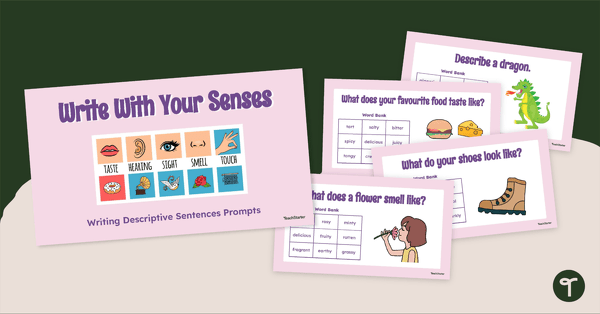
Write With Your Senses: Daily Descriptive Writing Prompts
Inspire your students to write descriptively using our 20 daily descriptive writing prompts slide deck and graphic organiser.
- Free Plan
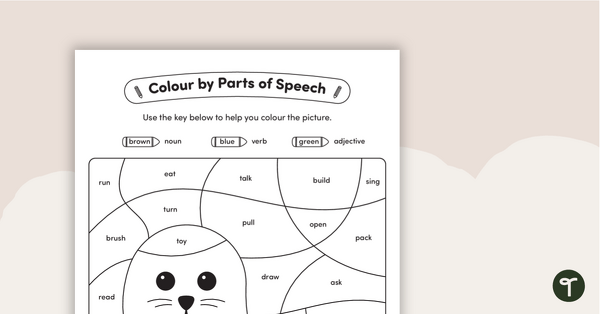
Colour by Parts of Speech - Nouns, Verbs & Adjectives - Seal
Review parts of speech by colouring nouns, verbs and adjectives on the seal.
- Free Plan
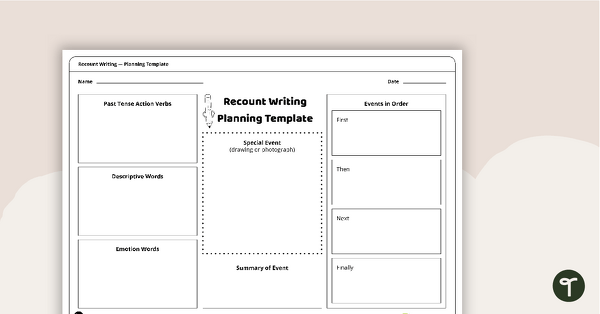
Personal Recount Planning Template
A template for students to use when planning a personal recount.
- Plus Plan
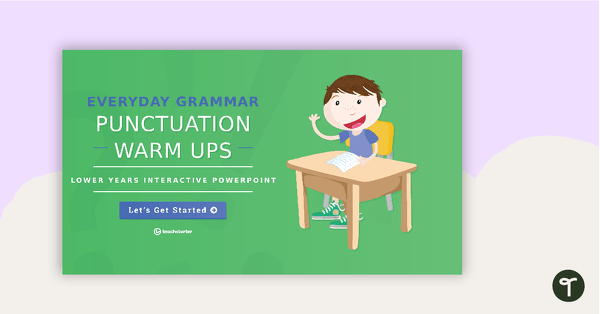
Everyday Grammar Punctuation Warm Ups - Lower Years Interactive PowerPoint
An engaging 44 slide interactive PowerPoint to use in the lower years classroom when learning about grammar and punctuation.
- Plus Plan
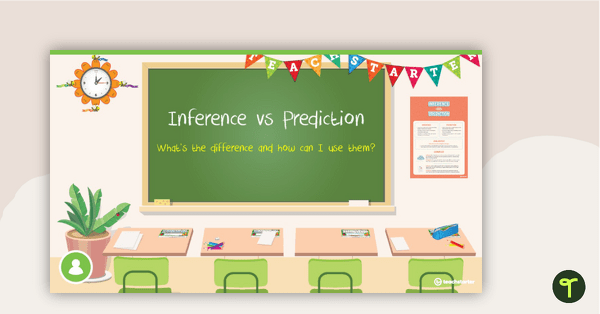
Inference vs Prediction - Presentation
A teaching presentation outlining the similarities and differences between inference and prediction.
- Plus Plan
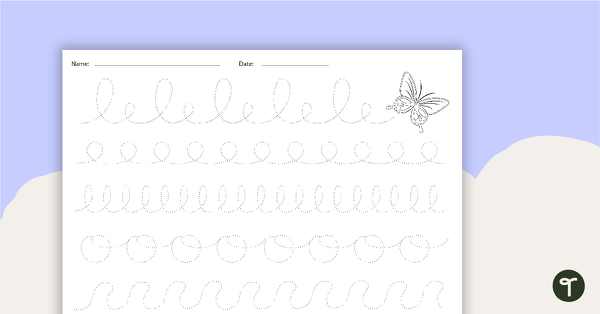
Pre-Handwriting Worksheets
A collection of 18 pre-handwriting skill sheets with a range of different techniques and themes.
- Free Plan
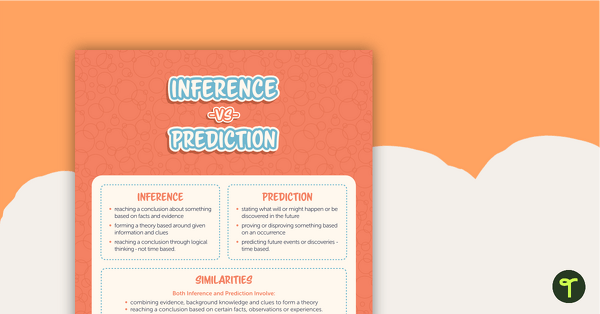
Inference vs Prediction Poster
A poster outlining the similarities and differences between inference and prediction.
- Plus Plan
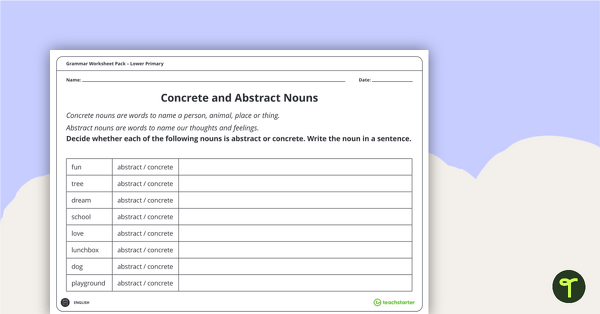
Grammar Worksheet Pack – Lower Primary
A 13 page worksheet pack to consolidate the learning of different grammar concepts in the early years.
- Plus Plan
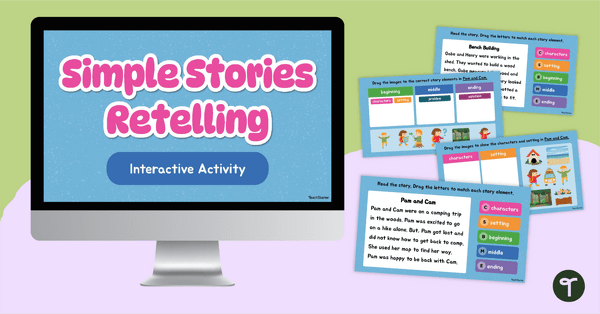
5 Elements of a Short Story Activity
Explore the 5 elements of a short story using this digital activity with five short stories.
- Plus Plan
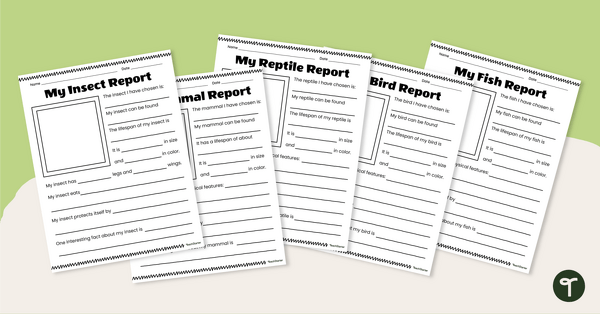
Animal Information Report Cloze Worksheets
Get your students to write a simple information report on an animal with this set of structured templates.
- Plus Plan
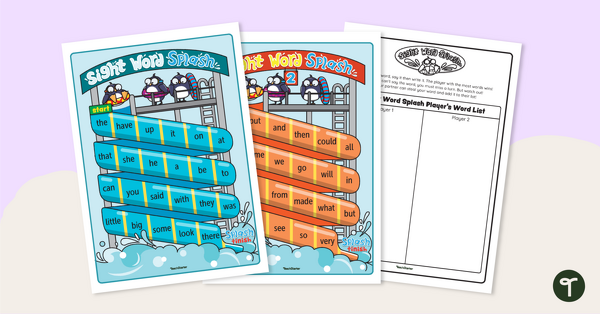
Sight Word Splash Game
Use this collaborative partner game to allow your students to practise reading and writing some of the most common high-frequency words.
- Plus Plan
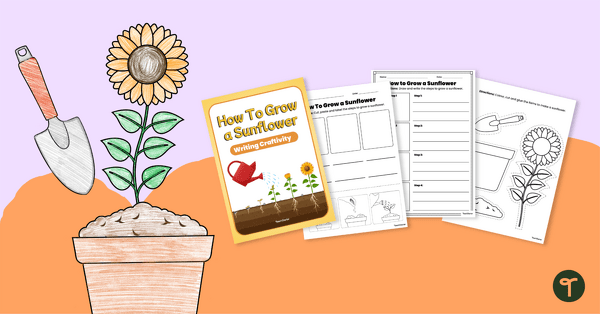
How to Grow A Sunflower – Procedural Writing Craftivity
Use this printable sunflower craft template to teach your students all they need to know about procedural writing!
- Plus Plan
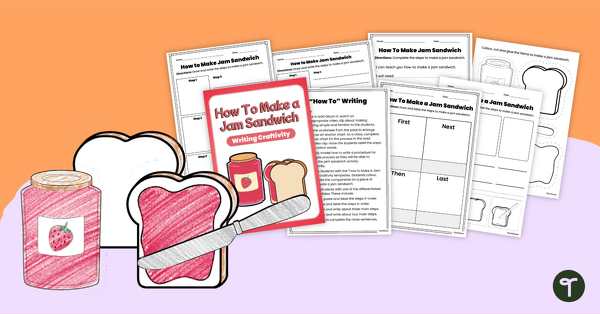
How to Make A Jam Sandwich – Procedural Writing Craftivity
Teach your students all they need to know about procedural writing by exploring how to make a jam sandwich!
- Plus Plan
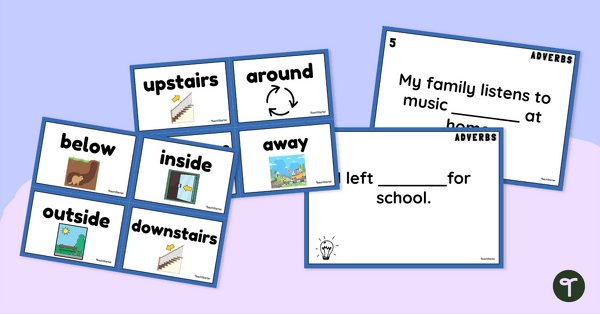
Adverb Whole Class Game
Teach your students how to use adverbs to add detail in simple sentences with this fun whole-class game!
- Plus Plan
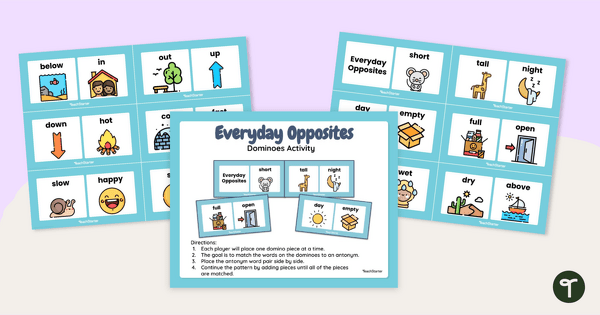
Everyday Opposites - Antonym Game
Have some wordplay fun with an Everyday Opposites domino game!
- Plus Plan
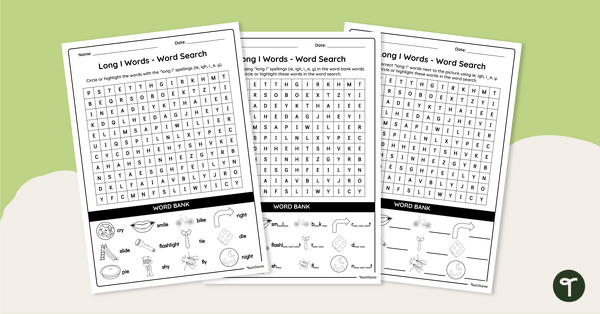
Long I Words - Word Search
Explore words containing some of the most common ‘long i’ graphemes with this set of differentiated word searches.
- Plus Plan
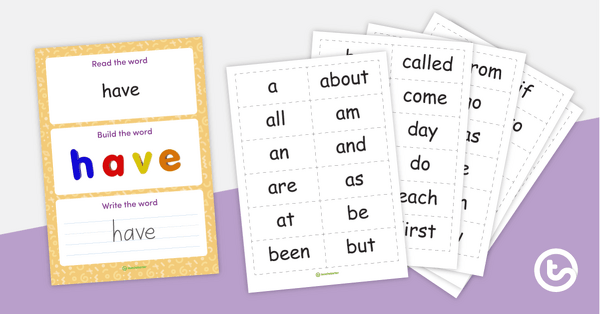
First 100 Fry Sight Words – Practice Mat
A hands-on resource to enable your students to practise reading and writing a range of high-frequency words.
- Plus Plan
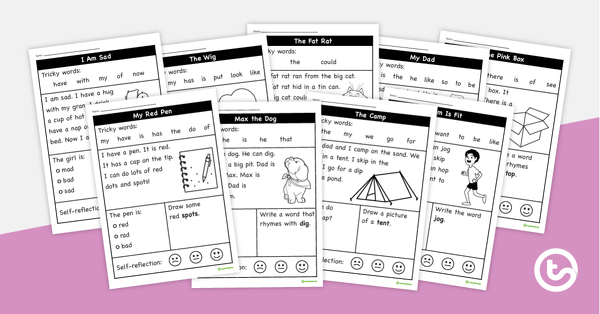
Decodable Text Worksheets – Single Graphemes (Set 2)
A set of 10 decodable text worksheets for early readers.
- Plus Plan
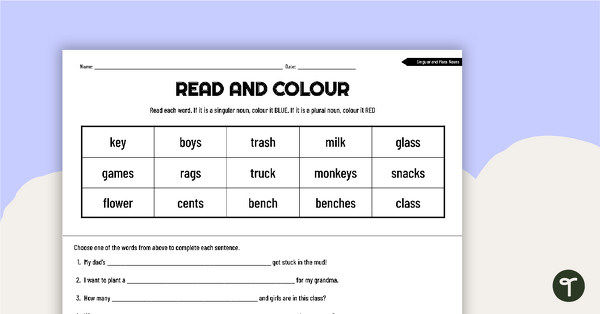
Read and Colour Worksheet – Singular and Plural Nouns
A worksheet to practise identifying singular and plural nouns.
- Plus Plan
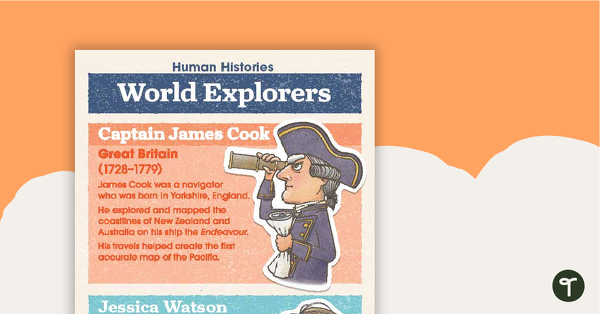
Human Histories: World Explorers – Comprehension Worksheet
A comprehension worksheet for a magazine article about some world explorers and their achievements.
- Plus Plan
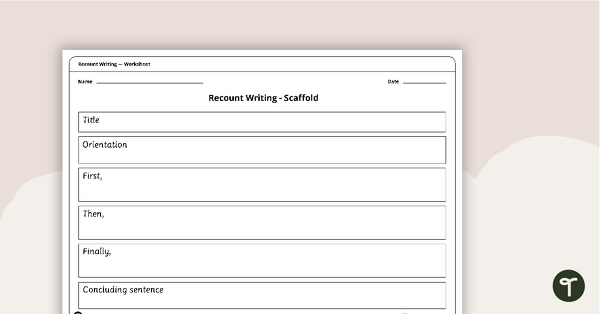
Simple Recounts - Writing Scaffold
A simple scaffolding worksheet to use when writing a recount.
- Plus Plan
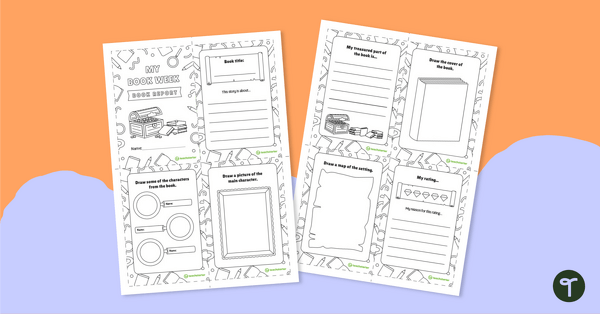
Book Report Mini Book
Have students write about their favourite literature with this fun-sized mini-book.
- Plus Plan
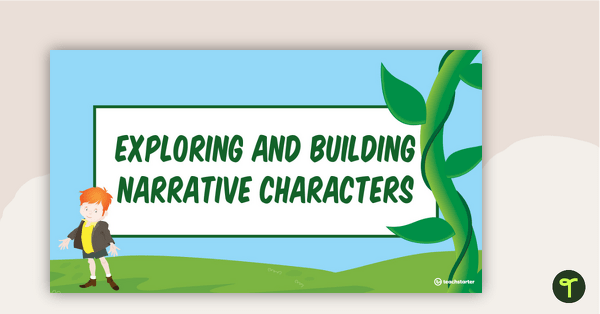
Exploring and Building Narrative Characters PowerPoint
A 14 slide editable PowerPoint template to use when teaching younger students about how to build a character for a narrative text.
- Plus Plan
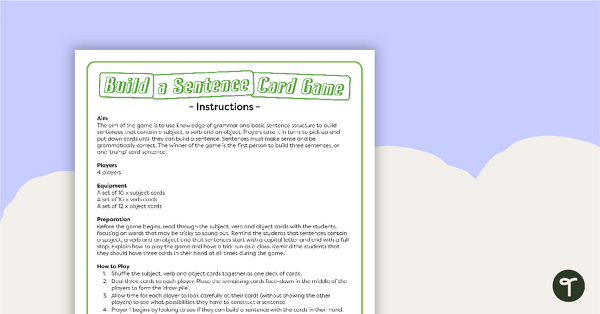
Build a Sentence Card Game
A fun and engaging card game that focuses on building simple sentences that include a subject, verb and object.
- Plus Plan
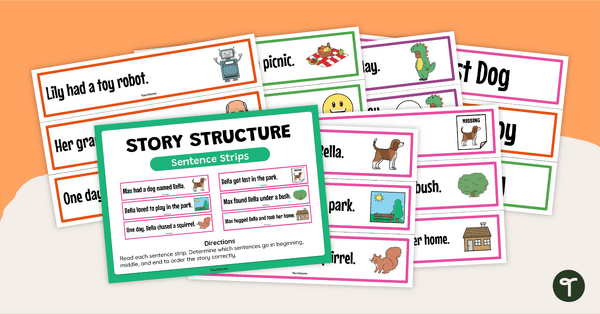
Story Structure Sentence Strips
Explore sentences that form the beginning, middle and end of 5 short stories with this sorting activity for younger year levels.
- Plus Plan
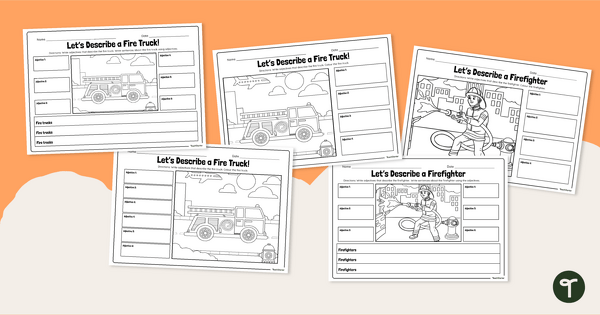
Fire Truck and Firefighter Adjectives Worksheet
Describe firefighters and fire trucks using descriptive adjectives with a set of printable Community Helper worksheets for Early Years.